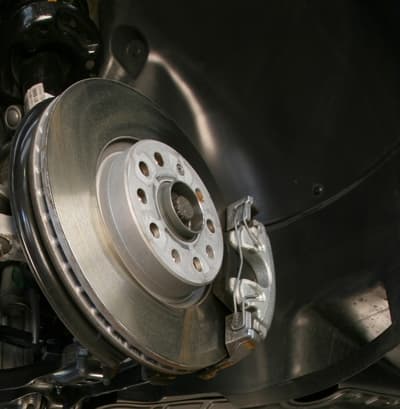When does brake fluid need changing?
Brake fluid is a vital component for your car’s braking system. The brake fluid, often referred to as hydraulic fluid, is part of the hydraulic system that makes your brakes work.
Book Now
When you apply pressure to your brake pedal the fluid is pressurised, pushing the brake pads onto the discs to slow the car down. This action is impossible without brake fluid.
When does brake fluid need changing?
Brake fluid loses its effectiveness over time as it is hygroscopic which means it absorbs water. As the water content of the fluid increases air bubbles are created causing the brakes to lose their effectiveness and become dangerous. This is evident when brakes begin to feel spongy.
How often should brake fluid be changed?
Brake fluid can get contaminated as it absorbs water which reduces the boiling point of the fluid, therefore it is recommended that it is changed in line with your vehicle manufacturers recommendations which is generally around every 24 months or 24,000 miles, whichever comes first.
What happens when brake fluid is low?
Your braking system can be affected if the brake fluid is low causing a vibration to be felt when braking. Where brake fluid is very low this can allow air to enter the braking system which could result in a loss of brakes. A noise coming from the brakes when pressure is applied also signals an issue and the brakes need to be checked by a professional.
Can you just add brake fluid to your car?
If you suspect your brake fluid is low, you can top up the liquid yourself. First you need to ensure you are parked on a flat surface, locate the brake fluid reservoir situated under the bonnet then wipe the reservoir cap to prevent debris falling into the reservoir. Slowly add the brake fluid to the master cylinder reservoir taking care not to overfill it. The master cylinder will have a MAX level to prevent overfilling. You MUST ensure that you use the correct brake fluid for your vehicle (Refer to manufacturer handbook for further information)
Overfilling can mean that the brake fluid will not have enough room to expand and will leak out of the reservoir causing a mess. Problems can also occur with the braking system such as the brakes feeling like they are still engaged, often referred to as brake dragging.
How do you know if you need brake fluid?
Aside from checking the brake fluid level in the master cylinder reservoir there are warning signs that the brake fluid is low. The brake pedal can feel spongy and unresponsive or you may notice a noise when braking. If you notice any of these issues, it is advisable to get your brakes checked by a professional. For just £20, here at National we can carry out a comprehensive inspection of the braking system which involves measuring the pads and discs, assessing the condition of the master cylinder and the brake hose as well as testing the brake fluid.

Does changing brake fluid improve braking?
Changing the brake fluid will improve braking providing there are no underlying issues with your braking system. Aging brake fluid will become contaminated with water and metal particles from the parts that make up the braking system, changing the fluid will prevent corrosion and the components eventually failing.
Is brake fluid change part of a service?
During an interim and full service at National tyres, the brake fluid level will be checked. If it is low, an advisory will provided to top up or change the brake fluid.
Does brake fluid go bad?
The recommendation that you change brake fluid every two years or so is due the fact that it will go bad from absorbing moisture and metal particles over time and eventually its performance will be reduced.
Do you pump brakes after adding brake fluid?
Throughout the process of adding brake fluid, the brakes will need to be pumped to remove air from the brake line which can make the pedals feel spongy. This process is often done with the aid of specialist pressurised equipment. All air will be bled from your braking system before your vehicle is returned to yourself.
How do I know if my brake fluid is low?
It is relatively easy to determine if your brake fluid is low as this can be defined through a simple visual check. Fortunately, most vehicles are now fitted with brake sensors which will send a signal to your car’s ECU (electronic control unit) which in turn will illuminate the brake warning light on your dashboard.
Alternatively, if you notice a spongy feel under foot when pressing the brake pedal it is time to get the brake fluid checked.
Can you drive with low brake fluid?
Driving with low brake fluid will eventually cause issues with the braking system so it is advised that the brake fluid is topped up or replaced as soon as possible if you are aware that it is low.
If in any doubt book a FREE safety inspection today at National Tyres who will carry out a visual safety inspection or book a comprehensive brake check for a more thorough inspection which involves removing the wheels from the car and carrying out a detailed inspection of the braking system.
Did you enjoy this blog post? |35 people found this review helpful



 Sign up for SPECIAL OFFERS
Sign up for SPECIAL OFFERS
